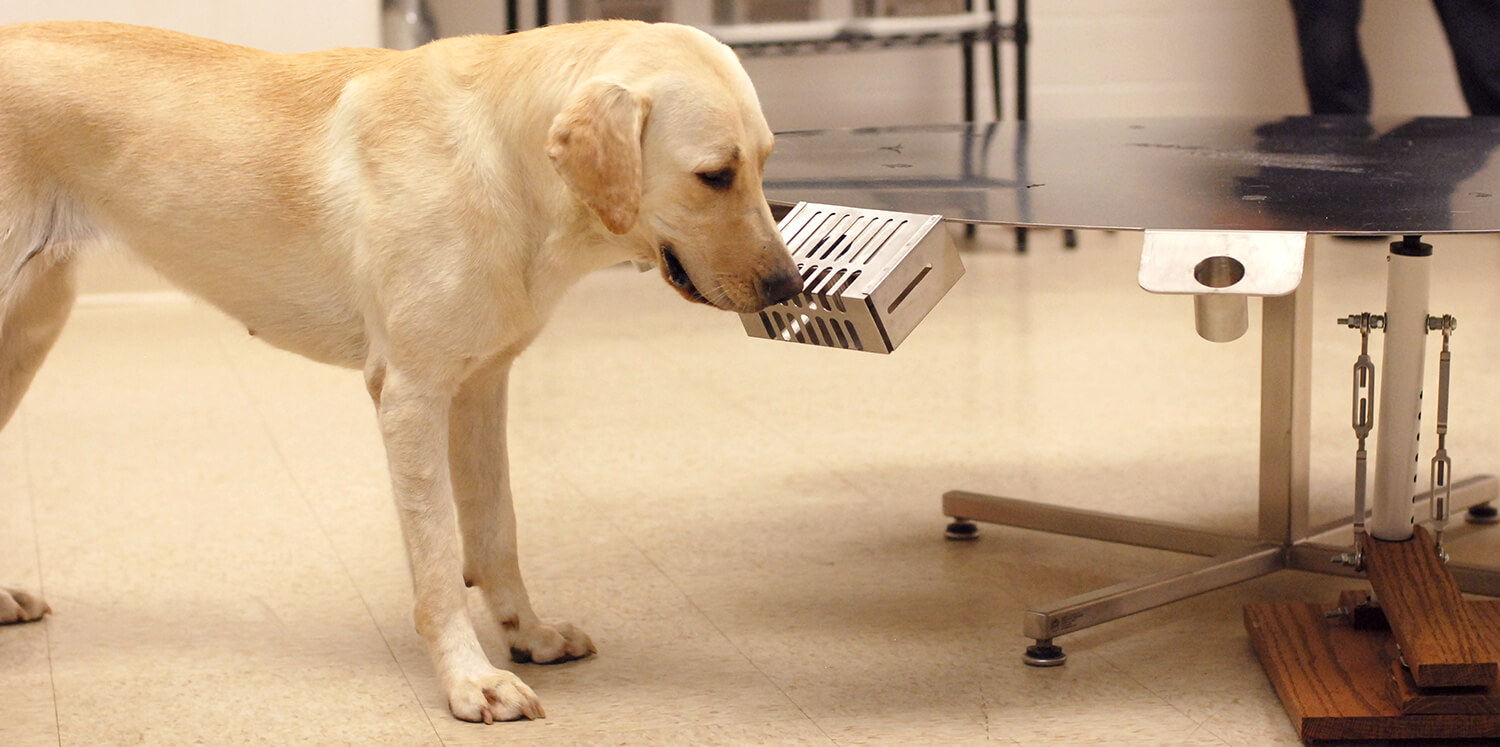 Working Dogs Join the Fight to Save Cultural Heritage
Working Dogs Join the Fight to Save Cultural Heritage
[December 12, 2017; Philadelphia, PA / Lebanon, NH] - Red Arch Cultural Heritage Law & Policy Research and the University of Pennsylvania’s
Penn Vet Working Dog Center, in collaboration with the
Penn Museum (University of Pennsylvania Museum of Archaeology and Anthropology), have launched the K-9 Artifact Finders research program. The project aims to fight cultural heritage crime with the help of working dogs.
“We must stop the crime of transnational antiquities trafficking,” said cultural heritage lawyer Rick St. Hilaire, founder and executive director of Red Arch Research. “Dogs may be the right law enforcement partner to get the job done,” added Dr. Lou Ferland, retired police chief and head of
The United States Police Canine Association, who serves as advisor to the K-9 Artifact Finders project.
Dr. Cynthia Otto is the executive director and principal researcher at Penn Vet’s Working Dog Center, an international leader in working dog research. Otto has trained many dogs for law enforcement, search and rescue, and medical detection. “The kind of canine training we will undertake for K-9 Artifact Finders is unprecedented. We think it is innovative and doable.”
Phase I of the study will focus dogs on sniffing for objects from the Fertile Crescent region of modern-day Iraq and Syria, a prime target for cultural heritage looting, in order to find specific target odors. Finding scents linked to illegally looted artifacts could equip customs officers with an advanced tool to help apprehend heritage traffickers and their smuggled cultural property packages at airports and cargo facilities. If successful, additional funding will be sought for on-the-ground testing (Phase II) and, later, for a demonstration program for customs officials in the United States and abroad (Phase III).
“Terrorists, organized crime, and common criminals are destroying archaeological sites on an industrial scale to cash-in on illegal profits,” warned archaeologist Dr. Michael Danti, a principal consultant. “That is why we need to find out if we can train dogs to help.” Danti, who received his PhD in Anthropology from the University of Pennsylvania in 2000, is a Penn Museum Consulting Scholar.
Retired Homeland Security customs officer Domenic DiGiovanni agrees. “Smugglers import stolen heritage into the U.S. by hiding them in packages and crates. Using canines to sniff out illegally dug-up artifacts would help customs officers quickly identify smuggling suspects, who usually falsify import forms when they traffic artifacts, which is a felony.”
Project consultant Peter Herdrich of
Cultural Capital Group, LLC noted that this crime is big and spreading. “We now face the daunting task of unscrupulous dealers mailing more and smaller cultural artifacts into the country as a result of growing on-line antiquities and ancient coin sales.”
About Red Arch Cultural Heritage Law & Policy Research
Red Arch Cultural Heritage Law & Policy Research is a recognized 501(c)(3) nonprofit whose mission is to apply first-class research to safeguard cultural heritage. Peter McGovern serves as President. For more information, contact Founder and Executive Director Rick St. Hilaire at
director@redarchresearch.org or visit www.redarchresearch.org.
About the Penn Vet Working Dog Center
About the Penn Museum
Founded in 1887, the Penn Museum in Philadelphia is one of the world's great archaeology and anthropology research museums, and the largest university museum in the United States. With nearly one million objects in the collection, the Penn Museum encapsulates and illustrates the human story: who we are and where we came from. The Museum's mandate of research, teaching, collections stewardship, and public engagement are the four "pillars" of the Museum's expansive mission: to transform understanding of the human experience. Dr. Richard Zettler, Associate Curator-in-Charge of the Museum’s Near Eastern Section, will assist the K-9 Artifact Finders program.